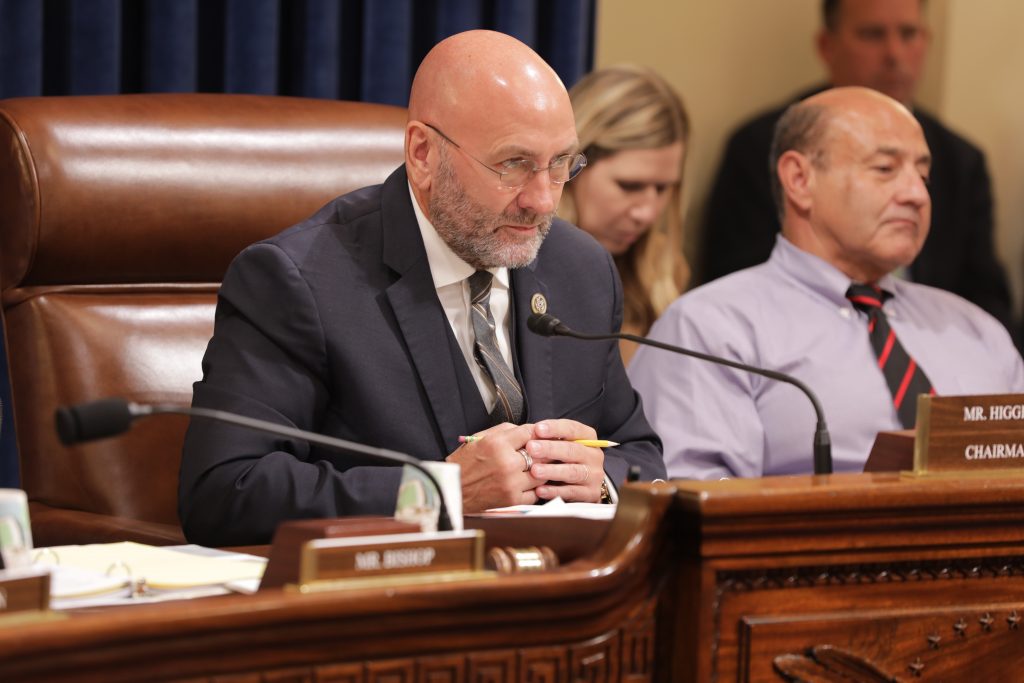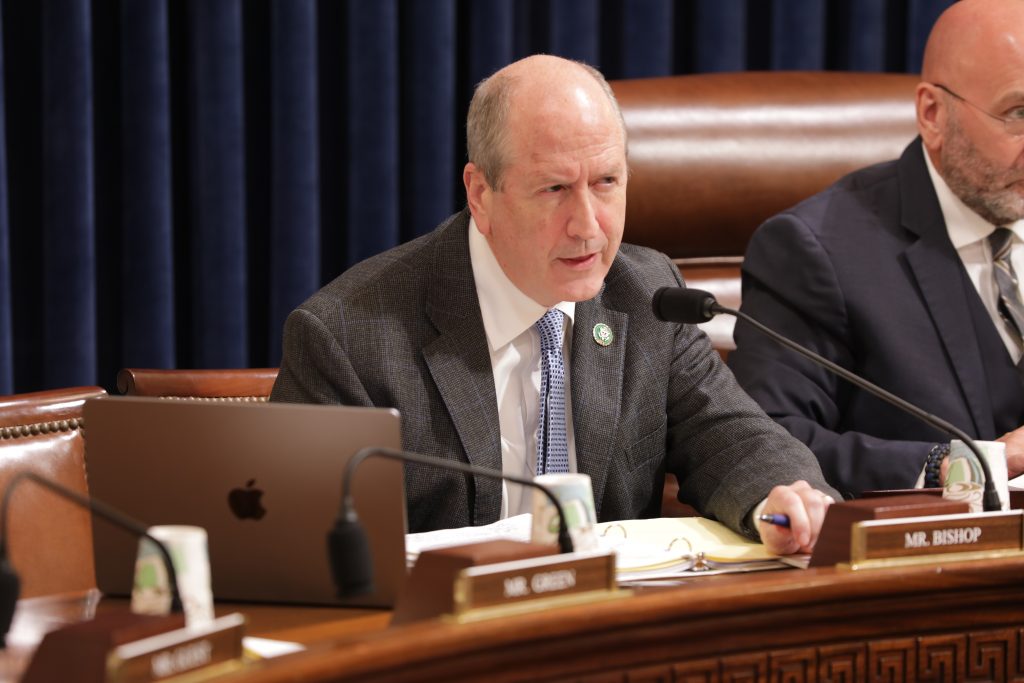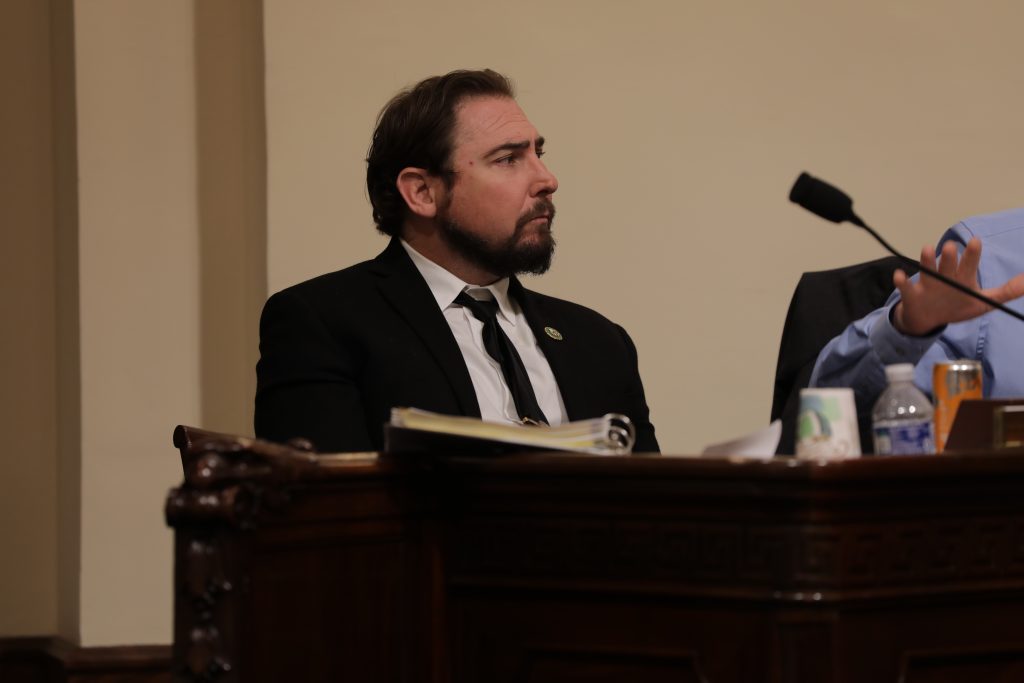ICYMI: Former Border Patrol Chief, New Mexico Rancher Testify on Biden Admin’s Reckless Border Wall Cancellation
July 19, 2023
WASHINGTON, D.C. — This week, the Homeland Security Subcommittee on Border Security and Enforcement, led by Chairman Clay Higgins (R-LA), and the Subcommittee on Oversight, Investigations, and Accountability, led by Chairman Dan Bishop (R-NC), held a joint hearing to examine the effectiveness of the border barrier system and the effects of the Biden administration’s cancellation of border wall contracts on the safety and security of the American people. Witness testimony was provided by Ntina Cooper, Deputy Executive Assistant Commissioner for Enterprise Services, Customs and Border Protection; Colonel Jason Jefferis, Head of Contracting Activities, U.S. Army Corps of Engineers; Rebecca Gambler, Director, Homeland Security and Justice, U.S. Government Accountability Office; Ron Vitiello, Former Chief of the U.S Border Patrol (Retired); Jim De Sotle, Interim Chief Executive Officer, LoneStar Pipeline Contractors; Russell Johnson, New Mexico cattle rancher and Alexander Tenorio, MD, Neurological Surgery Resident, University of California San Diego Health.
In the hearing, Members received confirmation from witnesses that physical barriers, such as border walls, are effective tools to deter illegal border crossings, help our overwhelmed Border Patrol agents gain operational control between ports of entry, and deter dangerous criminals and drugs from entering the homeland undetected. In addition, the Biden administration’s cancellation of border wall contracts has cost the American people millions of taxpayer dollars in wasted supplies, some of which were left abandoned on the land of American ranchers and farmers. Further testimony from New Mexico cattle rancher Russell Johnson reveals the real-life impact of an unsecure border and Secretary Mayorkas’ dereliction of duty on American families.
Read highlights of the hearing below.
In his opening remarks, Mr. Johnson explained the damage done to his ranch as a result of the influx of illegal immigrants crossing the border illegally onto his property:
“I am very familiar with all that happens along the border. My family has experienced very little good, but just about all the bad one can wish to experience regarding the border. My dad and uncle had a pickup stolen from them at gunpoint by young men who had been guarding a drug field in Mexico. We have had cattle thieves cross into the United States to steal our cattle and drive them into Mexico. My parents, uncles and cousins have all had their homes broken into by illegal immigrants. Property damage and trash left behind by illegal immigrants are also things that my family and I deal with.”
Chairman Clay Higgins (R-LA) began his second round of questioning addressing the supplies abandoned on Mr. Johnson’s property as a result of the Biden administration’s cancellation of border wall contracts:
“Mr. Johnson, you stated you have massive piles of rock and gravel [on your property]. […] Describe what you mean by that.”
Mr. Johnson replied:
“A portion of the area where the border wall was constructed on our ranch was through a slightly mountainous area and so the mountains had to be taken down to certain grades to accommodate the wall. In doing so all that rock was taken and piled up […].”
Subcommittee Chairman Higgins continued:
“Understood. It was byproduct of the construction effort. Give us an idea – [was the byproduct] a size of a suburban or the size of this committee hearing room?”
Mr. Johnson answered:
“Probably two to three times the size of this room, sir.”
Subcommittee Chairman Higgins responded:
“Okay, there you go. [This was ] on man’s private land. And just left behind by the government.’
Chairman Higgins concluded his line of questioning with addressing Mr. Vitiello:
“You had three significant leadership roles in the Department of Homeland Security. How do you think things are going down there?
Mr. Vitiello answered:
“We’re in the middle of the worst border crisis that we’ve ever seen. This administration chose to make incredibly bad choices about the policies that exist at our border today versus what they inherited. And just as an example, illegal migration along the southwest border, when this President took over, was at 45-year lows. Now we’re seeing the worst surge ever.”
In his second line of questioning, Chairman Dan Bishop (R-NC) questioned Mr. Johnson on the negative effects of border wall cancellation:
“Mr. Johnson, since the Biden administration ordered to stop the border wall construction that was in process, as you’ve described, what has the Biden administration done to protect you from the consequences that you’ve described?”
Mr. Johnson answered:
“In our area, the only thing that has changed is there has been one of the fixed integrated camera towers put in, and then they’re also discussing putting in a rescue beacon on our ranch that will help migrants so that if they get lost and give up they can push a button on this rescue beacon, but I’m not quite sure what that has to do with border security.”
Subcommittee Chairman Bishop followed up:
“How has that helped you?”
Mr. Johnson replied:
“It has not.”
A few moments later, Subcommittee Chairman Bishop continued:
“Why should you be subjected to that kind of invasion across your private property simply because you live and own property at the border of the United States?
Mr. Johnson concluded:
“I thought I should feel just as safe and secure 300 miles inland than where I’m at three miles off of the border where my house is located.”
Subcommittee Chairman Bishop turned to Ron Vitiello, former Chief of the U.S. Border Patrol, to ask him about the efficacy of border barriers:
“Folks have opined on this panel […] that border walls or barriers don’t work. Mr. Vitello, do they work?”
Mr. Vitello answered:
“They absolutely work. Anybody that’s been in the border patrol for more than five minutes knows that it’s much easier to control an area when you have a barrier, technology, and the sufficient number of agents, plus access to the border, to make it more secure. It provides an anchor for those agents to patrol and control area much more efficiently, much more effectively, and safer.”
In his opening line of questioning, Rep. Eli Crane (R-AZ) explained the importance of a border wall and modern technology to deter illegal crossings:
“Real security, whether at your house, or on the southern border, or in a prison, or at a military base overseas, has always been and will always be protected by overlapping deterrents. […] Homeland Security is supported by overlapping deterrents. Now, a wall is simply just one of those deterrents that overlaps and works in conjunction with well-trained agents, technology, intelligence, and more. Why? Because you can’t just say that one security element is going to keep you safe in any of those environments that I pointed out. […] [Ms.Cooper] Do you believe that we should discard [the wall] in trying to secure what we want to protect?”
Ms. Cooper replied:
“It’s been my privilege to support the U.S. Border Patrol for the last five years. And in my role, one of my chief responsibilities has been working with each sector to identify their full suite of gaps and requirements including some of the things you mentioned. […] The right mix and the right place [of deterrents] can add value to our border security enterprise.”
Rep. Crane concluded:
“The situation at our southern border will not change until my colleagues on the other side, and even those of us on this side, start implementing overlapping deterrence at our southern border just like we would in our own homes.”
###



